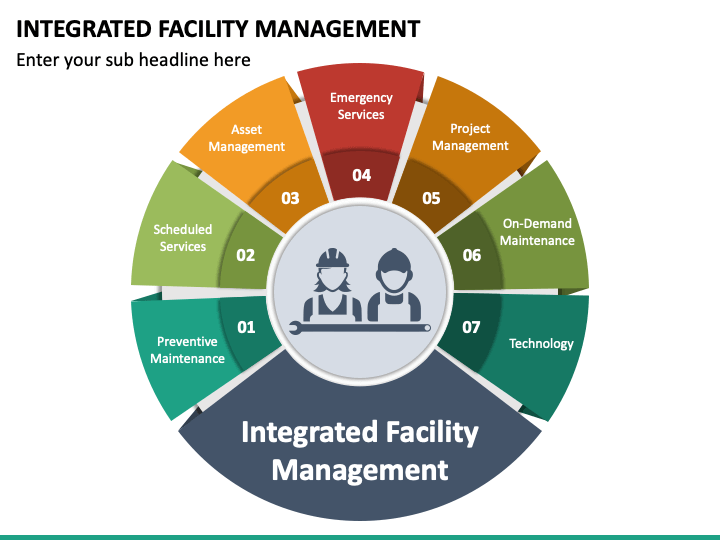Why Total Facility Management Is Essential for Business Success
Total Facility Management (TFM) serves as a foundation for organization success by harmonizing diverse functional facets such as maintenance, area utilization, and security actions. As services navigate a competitive landscape, recognizing the multifaceted advantages of TFM can be pivotal in driving expense effectiveness and enhancing staff member efficiency.
Understanding Total Facility Management
Total Facility Management (TFM) includes a thorough strategy to handling a company's buildings and linked solutions to make certain optimum functionality, safety, and effectiveness. TFM incorporates various self-controls, consisting of maintenance, procedures, space management, and safety methods, to develop a cohesive structure that supports an organization's core purposes.
At its core, TFM aims to streamline the processes associated with facility management, boosting and lowering redundancies solution distribution. This method includes the control of activities connected to property management, such as repair work, cleaning, and energy management, to foster an efficient environment for stakeholders and workers alike. TFM likewise emphasizes the importance of implementing best techniques and innovative technologies to boost solution quality and reduce operational costs.
Recognizing TFM needs recognition of its tactical significance in supporting an organization's goal. By straightening facility management activities with organizational goals, TFM boosts general efficiency while making sure conformity with health, safety, and ecological laws. Hence, TFM offers not only as a logistical function however additionally as a calculated asset, adding to a company's long-lasting sustainability and development. In summary, TFM is essential for developing a well-functioning atmosphere for organization success.
Trick Benefits of TFM
Leveraging a thorough approach, organizations that implement Total Facility Management (TFM) unlock a myriad of benefits that add to overall company success. Among the key advantages of TFM is the enhancement of functional performance. By combining facility solutions under a unified management structure, companies can improve procedures, decrease redundancies, and boost communication across divisions.
Furthermore, TFM advertises a positive upkeep technique, which reduces downtime and prolongs the life expectancy of facilitiess and equipment (Total Facility Management). This proactive approach not only enhances productivity but additionally cultivates a more secure working setting, inevitably bring about greater worker contentment and retention prices
Furthermore, TFM assists in much better resource allocation by providing understandings right into facility performance metrics. Organizations can identify locations for enhancement, enabling them to make informed choices that straighten with their calculated goals.
TFM and Cost Performance
Attaining expense efficiency is a basic objective for organizations, and Total Facility Management (TFM) plays a crucial function in this venture - Total Facility Management. By integrating numerous facility solutions under a solitary management framework, TFM allows organizations to enhance operations and reduce redundancies. This all natural method leads to substantial cost financial savings, as it gets rid of the need for several vendors and streamlines procurement procedures
Furthermore, TFM cultivates positive upkeep methods, which minimize the threat of costly fixings and downtime. By prioritizing preventative steps, companies can prolong the life-span of their assets and lower unexpected expenses. Additionally, TFM integrates power management methods, which can considerably reduce utility expenses via effective source utilization.
The centralization of data and analytics within TFM permits organizations to make educated economic decisions. By determining fads and areas for enhancement, TFM enables tailored methods that better enhance expense management. In addition, the scalability of TFM services makes sure that as companies expand, their facility management practices stay reliable and straightened with financial goals.
Enhancing Staff Member Productivity
A well-managed facility can considerably improve staff member productivity by producing a favorable work environment. Efficient Total Facility Management (TFM) guarantees that all elements of the work environment-- from illumination and temperature level to tidiness and security-- are maximized. When employees operate in a space that is comfortable and properly maintained, they are more most likely to concentrate on their jobs, leading to higher outcome and job complete satisfaction.
Furthermore, TFM can enhance collaboration via the critical layout of common areas, encouraging teamwork and technology. By buying the ideal resources and technology, companies can promote seamless communication and streamline operations, additionally improving productivity. Normal maintenance and prompt actions to facility problems prevent disturbances that could or else hinder performance.
In addition, a helpful resources risk-free and healthy and balanced job environment, sustained by TFM methods, reduces absence and promotes health, directly associating with boosted productivity degrees. Ultimately, focusing on facility management is an investment not just in physical assets however also in the labor force itself. By fostering an atmosphere that supports worker needs and preferences, businesses can cultivate an extra engaged and reliable workforce, driving general success and affordable advantage.

Future Trends in TFM
Embracing technological developments is readied to reshape the landscape of Total this hyperlink Facility Management (TFM) in the coming years. As the demand for effectiveness and sustainability boosts, TFM will significantly take on clever structure modern technologies, incorporating Net of Points (IoT) tools to monitor and manage facility operations in real-time. This change will certainly make it possible for aggressive upkeep, dramatically reducing functional prices and boosting service shipment.

Sustainability stays a vital emphasis, with TFM professionals anticipated to focus on environment-friendly practices. This includes making use of renewable resource resources and optimizing waste management systems to lower the carbon footprint of facilitiess.
Remote management capabilities will likewise be increased, permitting facility supervisors to oversee operations from essentially anywhere. This versatility will certainly come to be essential as companies adapt to crossbreed work versions. In recap, the future of TFM is positioned for transformation through technology, sustainability, and improved operational techniques, making sure organizations continue to be affordable in an advancing landscape.
Conclusion
By incorporating different operational features, TFM improves efficiency and straightens facility management with organizational purposes. As services increasingly take on ingenious technologies and lasting practices, the relevance of TFM will certainly proceed to grow, ensuring long-lasting operational efficiency and competition in a progressing industry.
